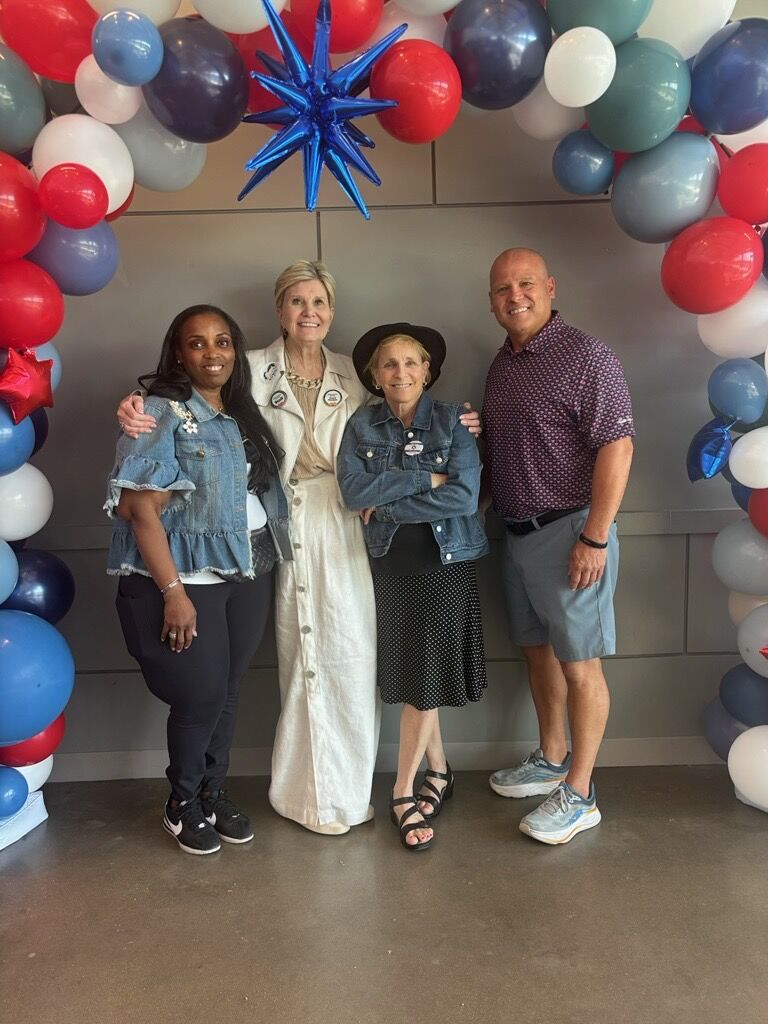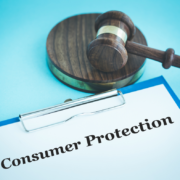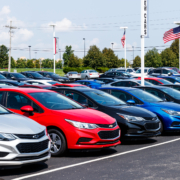By Sally Greenberg, NCL CEO

From left to right: Torine Creppy, Safe Kids Worldwide President; Janette Fennel, Kids and Car Safety President; Sally Greenberg; Brett Horn, Charlie’s House Founder
On a recent Sunday in October, I flew to Kansas City to celebrate the 30th Anniversary of Kids and Car Safety. The organization was formed by my friend and colleague, Janette Fennell, who dedicated her life’s work to preventing injury to children after she and her husband were kidnapped in their car. More on this story later, but it has a happy ending.
As a general matter, it’s often hard to celebrate advances in product and auto safety because they happen in the aftermath of injuries to children and adults from poorly designed products.
Indeed, I began working with Janette in 2002 to address the danger of drivers backing over children, typically toddlers, who are too small to be seen behind cars with no camera, which cars didn’t have in 2002. The first time I met Janette, she was hosting a press conference in suburban Washington, D.C. She had a speaker at the microphone who described the agony of backing over his grandchild. Hard to believe I hadn’t thought about this obvious hazard to children before.
Back to Janette’s history. In 1996, she and her husband Greig were forced into their trunk one evening when returning from a party in San Francisco, their 9-month-old strapped in his car seat in the backseat. The kidnappers thankfully kept the baby in his seat and placed him on the front lawn. He was unharmed. The robbers drove the couple to a remote location, demanded their ATM cards and PINS and cleaned out their accounts. She and Greig found a cable inside their Lexus that allowed them to pop open the trunk.
Janette swore that if she got out alive, and thankfully she did, she would dedicate the remainder of her life to saving kids in and around cars.
After this harrowing press event, I drove back downtown and on the way, decided Consumers Union, where I worked as product safety counsel at the time, should work with Kids and Cars to get a safety standard enabling drivers to see behind them as they backed up their vehicles.
As of Model Year 2018, after a decade and a half of passing a law, then bringing a lawsuit against the National Highway Traffic Safety Administration (NHTSA) to get it implemented, (this included many families who had lost children coming to Washington and a concerted consumer advocacy campaign), every passenger motor vehicle is required to have a backup camera.
Back to my story about sadness and product safety. While in Kansas City, I met up with child safety advocate, Brett Horn and toured Charlie’s House, the model home he built as a tribute to his 2 ½ year old son, who was crushed 20 years ago under a chest of drawers that toppled over on him. Over 400 kids have died in furniture tip overs. Thanks to Brett and other safety advocates the STURDY Act passed in 2022, requiring the Consumer Product Safety Commission to set mandatory safety standards for all dressers and similar products made or sold in the U.S.
Every room in Charlie’s House – which is used to train parents and community members – has examples of hazards to children, such as lighters shaped as toys, colorful laundry pods, power tools, handguns with locks, refrigerators that lock shut, and small batteries that can be swallowed and children can die from. Believe me, there are things you’ve never thought of that kids get into. We all need to be educated about those hazards and ensure every home is made as safe as possible for kids.
While at Charlie’s House, the CEO of Safe Kids Worldwide, Torine Creppy, arrived to tour the house and afterward we all headed out to Olathe, Kansas, for the Kids and Cars 30th Anniversary Celebration. As we enjoyed Kansas barbecue, Janette told her compelling story once again. To me the most rewarding part of the event was hearing these encouraging statistics:
- The number of children strangled by power windows has drastically decreased thanks to safer switches. Kids and Car Safety (KACS) is responsible for the passage of a law that mandated a regulation on all new vehicles manufactured on or after October 1, 2010, to have the safer ‘pull up to close/push down car window switches.
In addition, many people are surprised to learn that hundreds of cars are stolen with children in the back seat every year. Cars are stolen from gas stations, convenience store parking lots, and even home driveways. Kids and Cars keep the data as no other group does, the first step to attacking the problem.
Though the most well-known and beloved technology in cars today are those backup cameras – not only because they provide a critical measure of safety, but they also give drivers a vast view of what is behind them as they backup into parking spots, garages, parking ramps and around dangerous corners. If I had a dollar for every person who tells me how much they love their car cameras, I’d be rich!
Don’t ever forget, the auto industry did not want to implement these safety changes, nor did the NHTSA, and both fought against them. But the advocates prevailed. And as with so many safety technologies, they provide a myriad of additional benefits.
My day in Kansas City reminded me once again why I do this work. Saving lives of children first, and protecting the rest of us, will never get old. My hat is off to Brett Horn and Janette Fennell and Kids and Cars – who have set a high bar, refused to cave to industry or government resistance, and told their stories over and over again and invited others to tell theirs. Hats off to them and others who have dedicated their lives to making our lives safer and more rewarding.


























